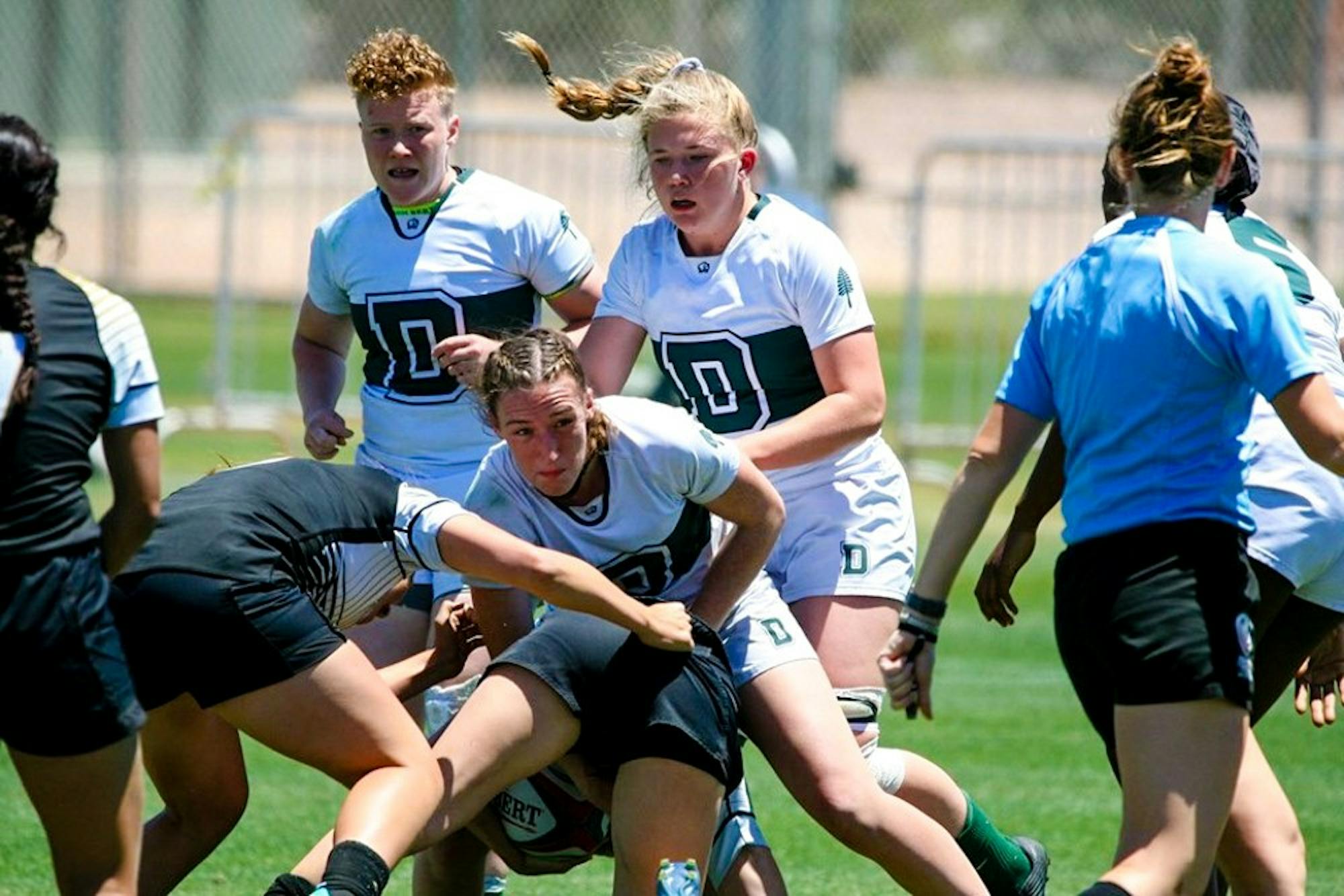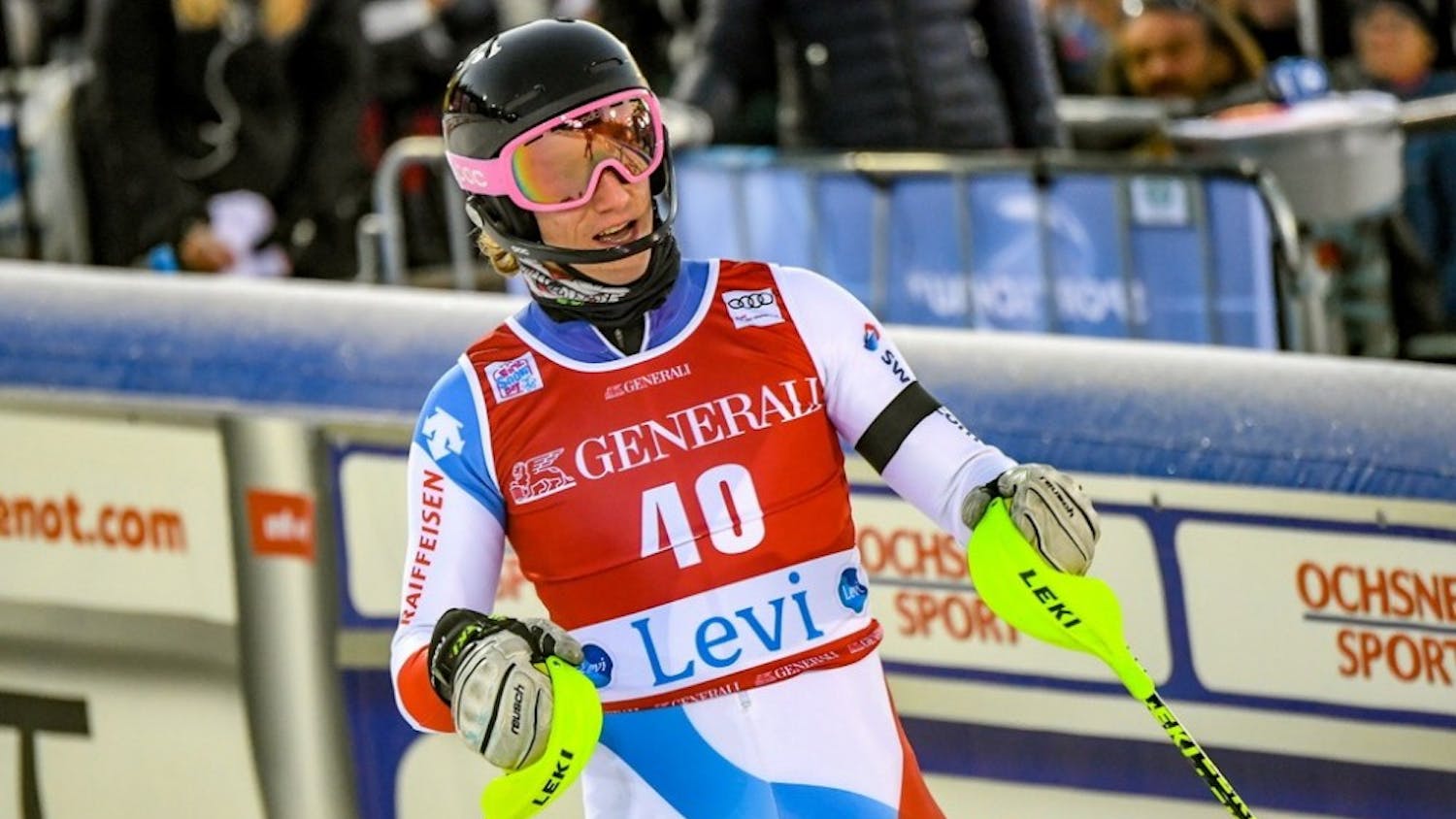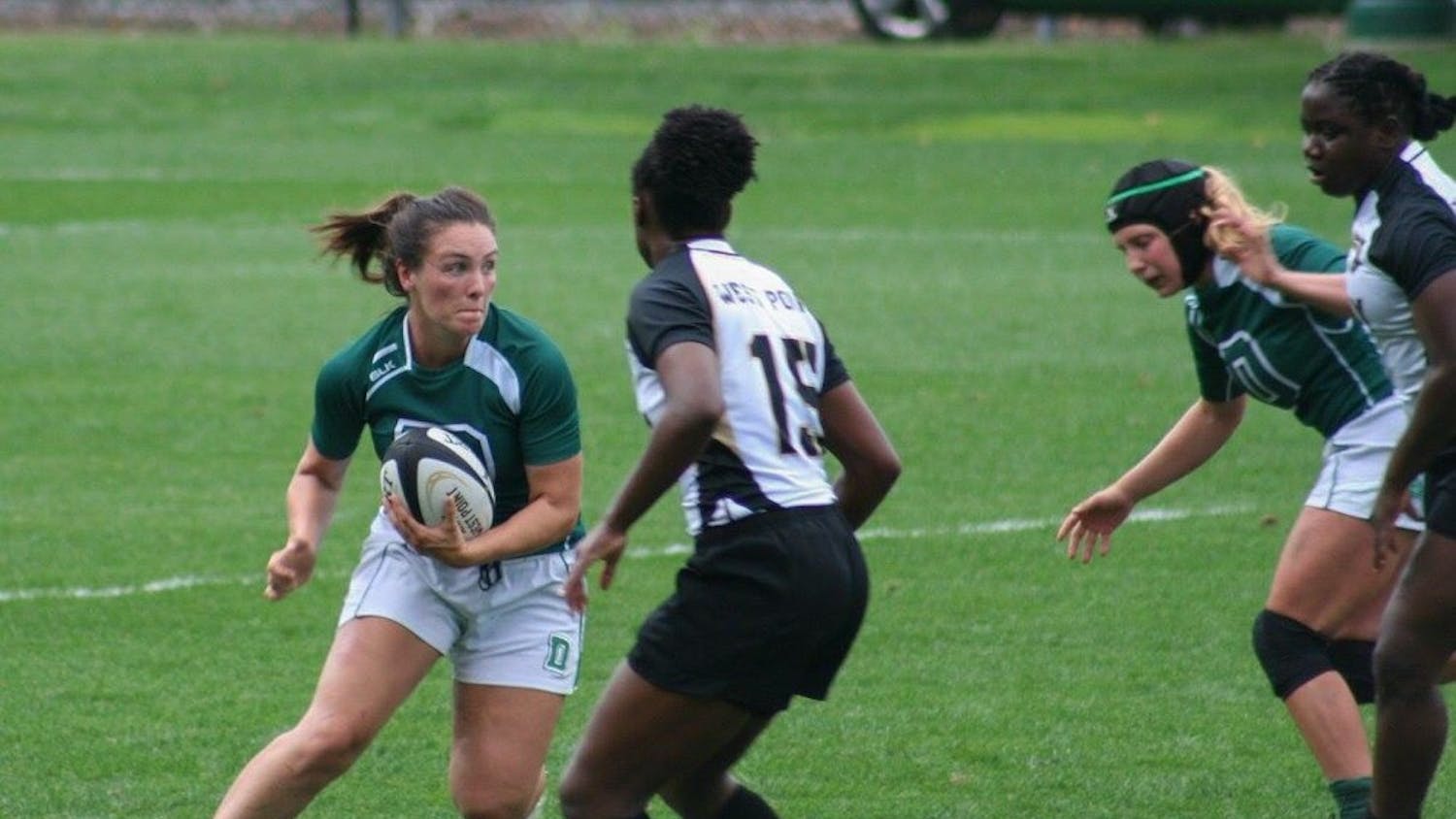Women’s rugby is among Dartmouth’s most successful, yet newest, varsity sports. The team played its first varsity game — and earned its first victory — in the fall of 2015 against the University of Pennsylvania. Since then, the team has won three Ivy League titles in four seasons. This past season, the Big Green defeated Harvard University to become National Intercollegiate Rugby Association national champion. The team’s excellence, however, began long before it earned its varsity status.
Their first win against Penn, and every win since, builds upon a legacy of success the team has been crafting since the founding of the Dartmouth Women’s Rugby Club in 1978. By 2015, the club had already produced six members of the U.S. national team and 13 All-Americans. When the team did gain varsity status, it was a result of the same hard work that brought the athletes success on the field.
“It was something the team actually campaigned for, it wasn’t something that came down from the athletic department,” captain Camille Johnson ’19 said.
The team made the jump to varsity during Johnson’s freshman year. Johnson said that members of DWRC worked for years to build a case for the switch, researching whether Dartmouth’s ratio of male-to-female athletes was in compliance with Title IX standards. Ultimately, Dartmouth became the 14th member of the National Collegiate Varsity Women’s Rugby Association, joining the only other Ivy League schools with varsity teams, Brown University and Harvard University.
While rugby is not yet a full-fledged NCAA championship sport, it was designated an NCAA Emerging Sport for Women in 2002. The NCAA created this program in 1994 in an effort to resolve the lopsided ratios of male-to-female student athletes by expanding varsity sports opportunities for women. An emerging sport is given a trial period of 10 years to become a championship sport. In order for the NCAA to organize a division or national championship for a given sport, 40 NCAA schools must have varsity teams in that sport. Sports that have followed this process to receive championship status include women’s rowing, ice hockey and, most recently, beach volleyball. Although more than 10 years have passed, rugby remains an emerging sport, with fewer than 30 varsity teams throughout the country.
While a standard of excellence in women’s rugby has remained a constant since the 1970s, one very specific element of Dartmouth’s team has changed since becoming varsity. Starting in 2015, the College’s athletic department has granted the team a few spots for recruited athletes each year. At the same time, the team’s success in teaching novices continues to play an important role in its development. According to Johnson, who was a walk-on her freshman year, the team gets five or six recruits a year. While a solid base of recruited athletes is currently developing, for the past few years, walk-ons like herself remained a dominant presence on the team.
“It’s been 50-50 for the most part,” Johnson said. “The strength of our team really comes down to our ability to get random people from campus who want to try something new and are excited about playing and want to learn and to teach them how to play and be successful.”
Walk-ons for the rugby team are generally also novices. The process of integrating new players into a team of more experienced athletes takes time and effort, requiring that the incoming players are eager to learn and that the coaches and upperclassmen are prepared to teach.
“The best way to learn rugby is just to actively learn … where you’re playing with the team and you get hands-on experience,” Johnson said. “But we also make sure to pull the players aside and teach them the basics on their own so that they can be safe to play rugby.”
Rugby is a sport unlike those commonly offered to high school female athletes. It is currently the only true full-contact sport offered to women in the NCAA. Consequently, many aspects of the game are likely to be unfamiliar to walk-ons.
“You have to learn how to tackle safely and how to be tackled safely, and also no one has ever played with a weird oval-shaped ball,” Johnson said.
Johnson, who played soccer in high school, said that her teammates at Dartmouth have a diverse array of athletic backgrounds, including basketball, football and track and field.
Lannan Abbott ’22, a walk-on this past fall, said she comes from a track and cheerleading background. Though there may not be a common high school feeder sport for the women’s rugby team, Abbott and Johnson gave similar reasons for joining and staying with the team.
According to Johnson, during her freshman orientation, she was walking into the Collis Center with a few of her freshman floormates when they met a group of seniors from the rugby team — members of the Class of 2016 — sitting on the porch. They convinced her to go to a few practices, where she said she “fell in love” with the team.
“Out of everything, [I joined because of] the team,” Johnson said. “It’s like a family and it really is the most supportive group of people that make you want to be around them. I fell in love with rugby later, and I love the sport and I love playing. I want to keep playing. But what’s kept me around and what brings walk-ons to join us, is the team.”
Abbott said that she also heard about the rugby team during her freshman orientation when she met Sophie Ragg ’22, who told her about the team and encouraged her to attend an information session.
“[Ragg] was just the most exciting person I’ve ever met, so welcoming and charming,” Abbott said.
She added that after she attended the information session and met more women both on the team and looking to join it, she felt attracted to the community.
“I know that sounds really cliché, but it’s the people,” Abbott said. “I think we have a really good culture.”
This culture is important to the team and to freshmen in particular, Abbott said, adding that walking onto a team that is “so successful” can be intimidating.
According to Johnson, the consistent and increasing success of the team is the result of an effective fusion of highly skilled athletes, effective coaching and the powerful bond between teammates.
“Rugby is an intense, physical sport,” she said. “Sometimes rugby doesn’t feel very good on your body. You’re getting tackled and you have to get back up every time, and what makes teams more successful is if they have a reason to get back up. Our reason to get back up is to fight for our teammates.”
Johnson added that the team’s future goals include defending its Ivy Championship title and repeating its success on the national level.
“We won a national championship now and we want to win some more,” she said.




